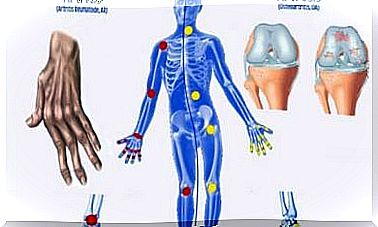Politeness, Perfume Of Life, Reflection Of Generosity
Today, in this article, we invite you to take an interest in politeness, this dimension essential to the common well-being.

Politeness is, above all, a personal value. While it is obvious that as a child we are all taught the basic standards of politeness and cohabitation, the key to being effective and useful is to be aware of them in order to practice them authentically. And for that, the will is necessary.
Politeness is synonymous with friendliness as well as gratitude towards the other person. It is therefore a form of universal respect that we should all practice in order to enjoy better interpersonal relationships.
Politeness, a way to bring positive energy

There is something we have all realized: the power of small, positive actions in everyday life.
A “Thank you”, a “How are you?” or a “Take care of yourself” are little rituals that help us so much to connect with each other.
Also, there is something else we said at the beginning, which is that without intention none of this would be impossible. Because to recognize our fellow human beings, we need a certain sensitivity.
We need a certain proximity and the clear intention to bring to u respect while knowing the needs of others.
In this article, we invite you to think about dimensions that encompass this theme.
Why are some people not polite?
Politeness is more than just habits that we are taught from childhood. These are aspects that go beyond letting go before entering, saying thank you, giving up your seat or listening before speaking …
We could say that this dimension is, beyond the rest, a personal value that not everyone practices with authenticity.
- The rude person does not empathize with others. In addition, it is often that she places herself in priority over others, with a proud and defiant attitude.
- Politeness is a strategy that allows us to better adapt to our contexts. The personality that lacks education will want others to adjust to it.
Pier Massimo Forni is a doctor and professor at Johns Hopkins University in Baltimore (United States).
Among his many studies related to social behavior, we find his work: “Choosing Civility: The 25 Rules of Considerate Conduct”.
According to Dr. Forni, lack of politeness leads to several types of social aggression. In addition to this, in some cases there may be psychological issues with emotional maturity.
Types of politeness

It’s odd, but there are two very concrete types of politeness. Stephen Levinson, a scientist specializing in social relations, distinguished two ways in which we can show this dimension.
- Negative politeness. It’s related to deference and we use it in phrases like “ if we don’t mind”, “if you don’t mind me doing this”…
- Positive politeness. Here, we seek above all to establish a positive relationship with the people around us. It goes beyond simple deference. She takes care of language, gestures and deeds, because we want to give the best of ourselves to others. Because that’s how we feel good, that’s what we are and in this behavior there are no hidden interests.
Politeness and affable people
Surely you have already been surprised to meet an unknown person who acted with exquisite affability, spontaneously offering you help and support.
At first, we are surprised when faced with these behaviors. We believe that this welcoming spontaneity and nobility is not normal. Yet, kind, affable people characterized by genuine emotional openness exist and make our world a prettier setting.
An affable and genuine person:
- uses a respectful language where we perceive emotional openness: I understand, I hear you …
- shows genuine interest, worry about whether the person is okay, and we can do something to improve that situation or their morale.
- act with sincerity
To offer politeness, respect, and appreciation to others, we need to be good emotionally. It is very complicated to offer empathy and optimism when what we are feeling is resentment.
Even if it is clear that we will not be at the same level of politeness every day, it is best to work on our personal and emotional balance every day. It is only when we feel good that we will give the best of our essence to others.









